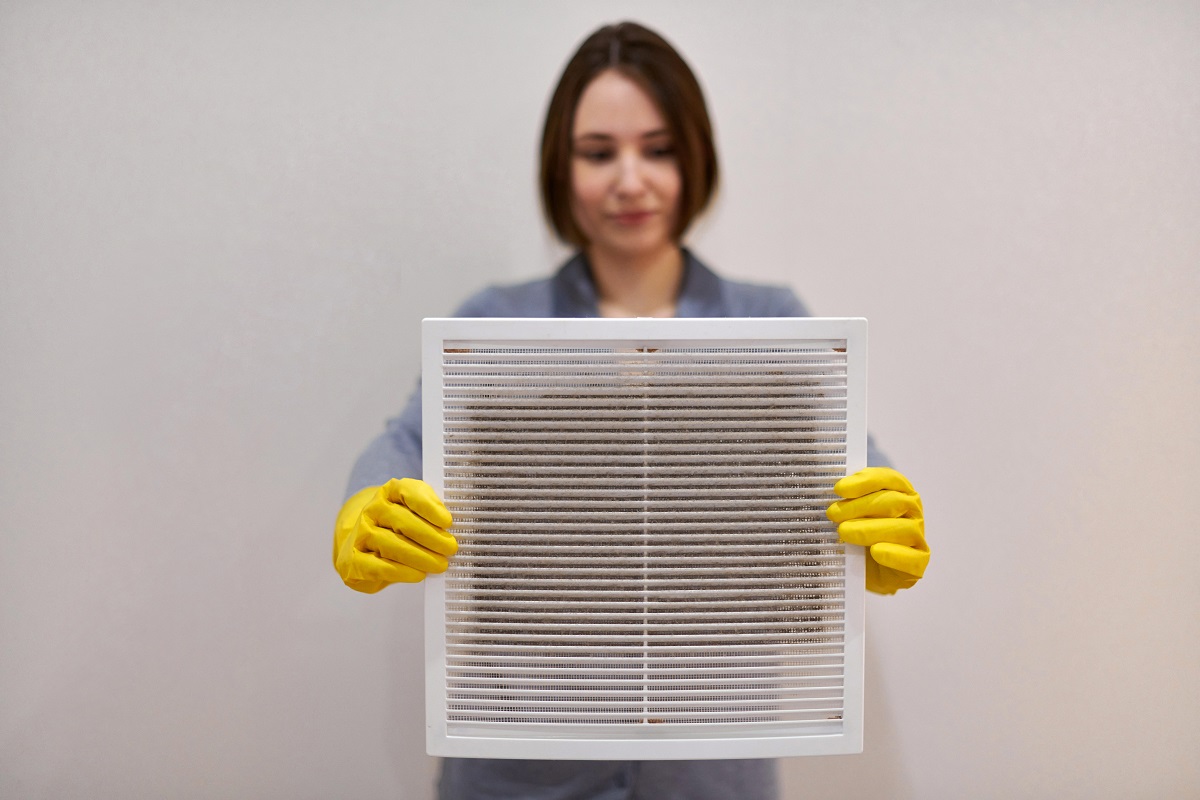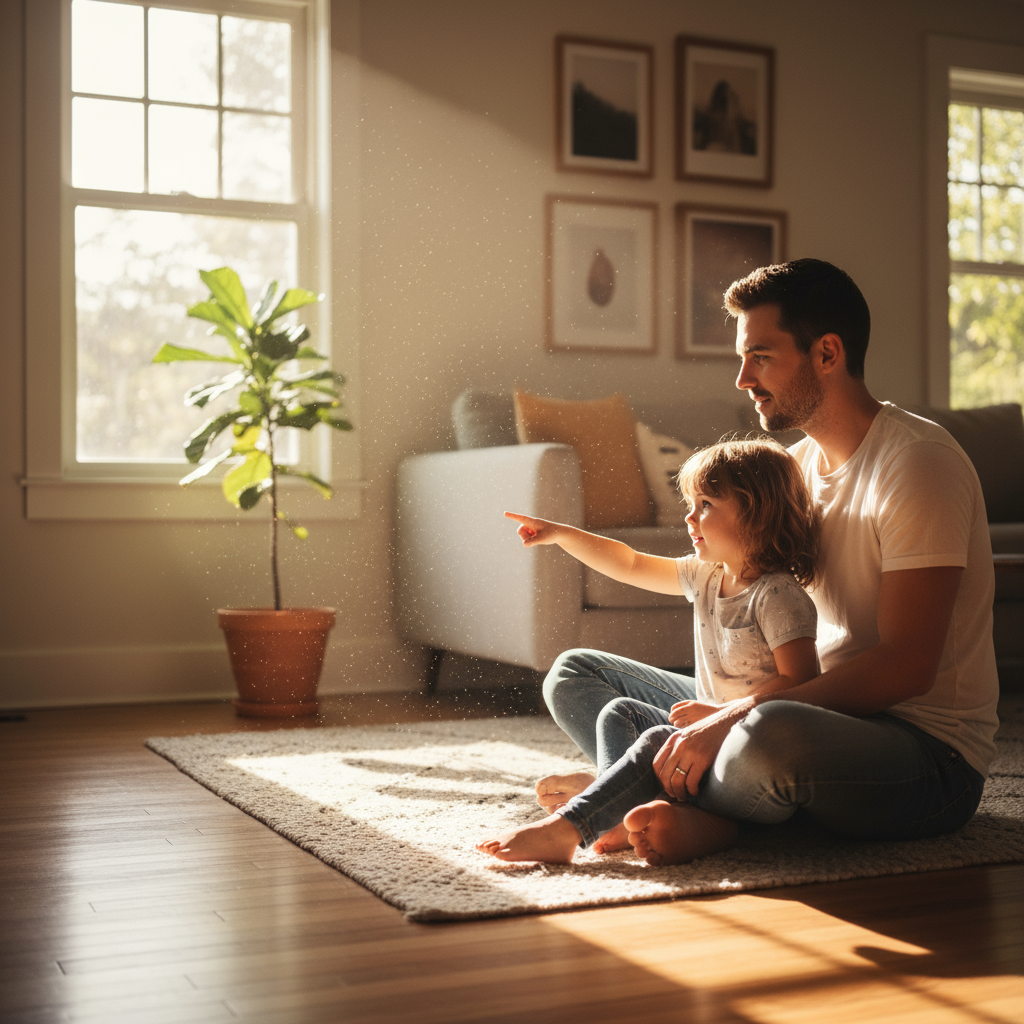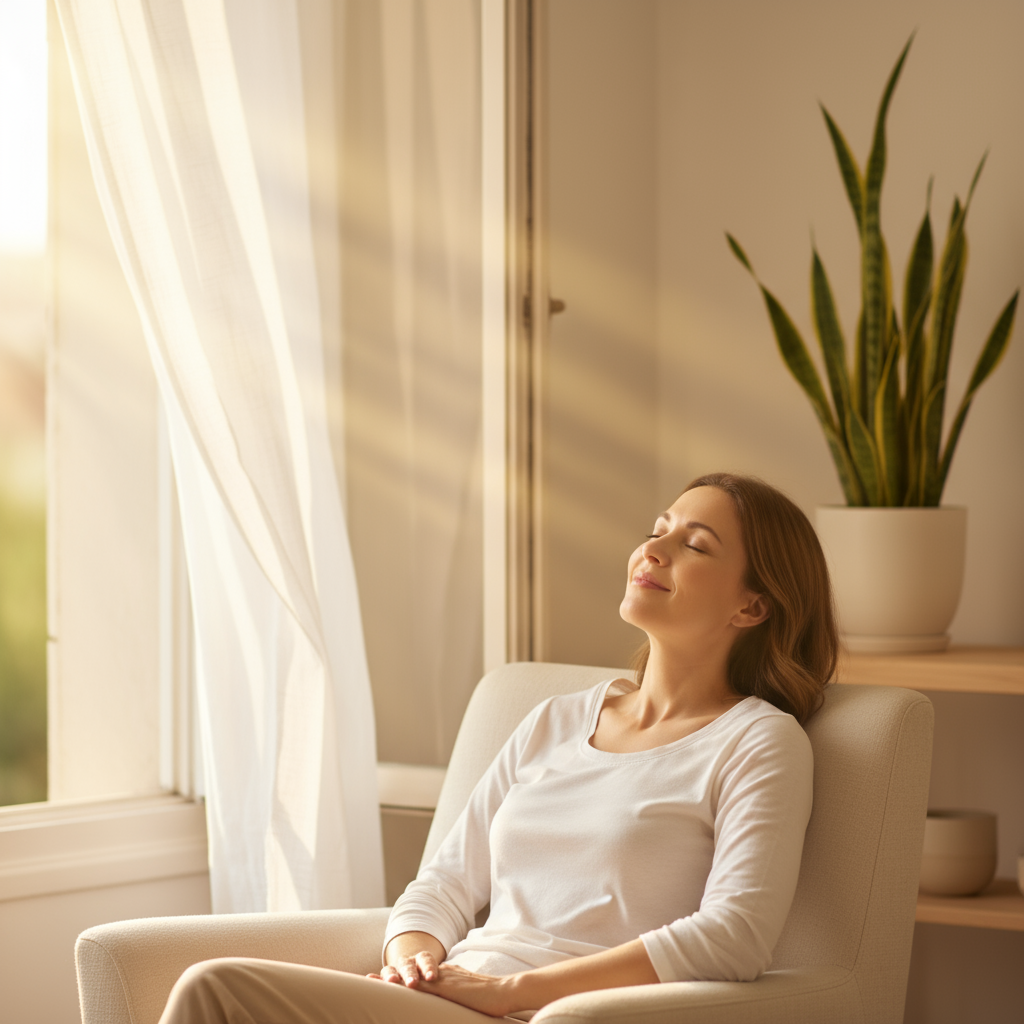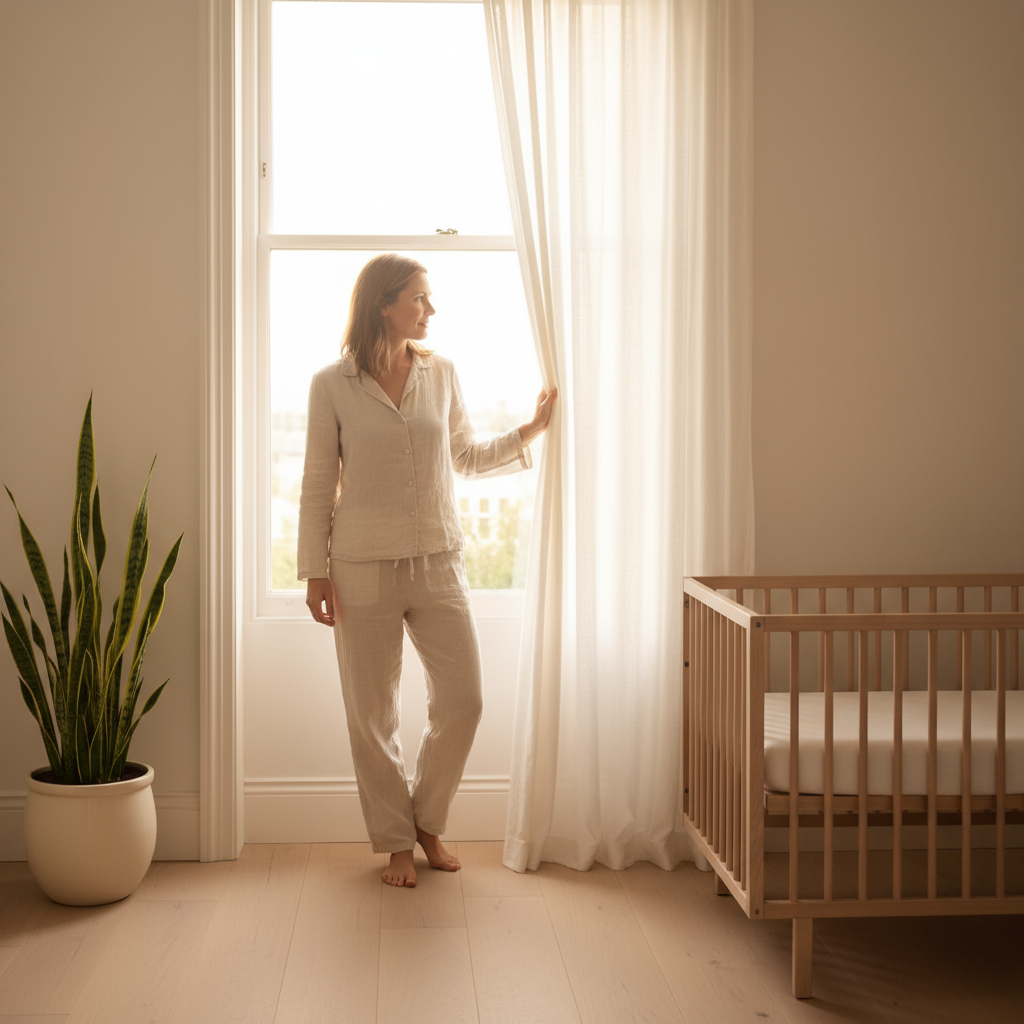How to Test Your Lungs at Home Without Any Equipment
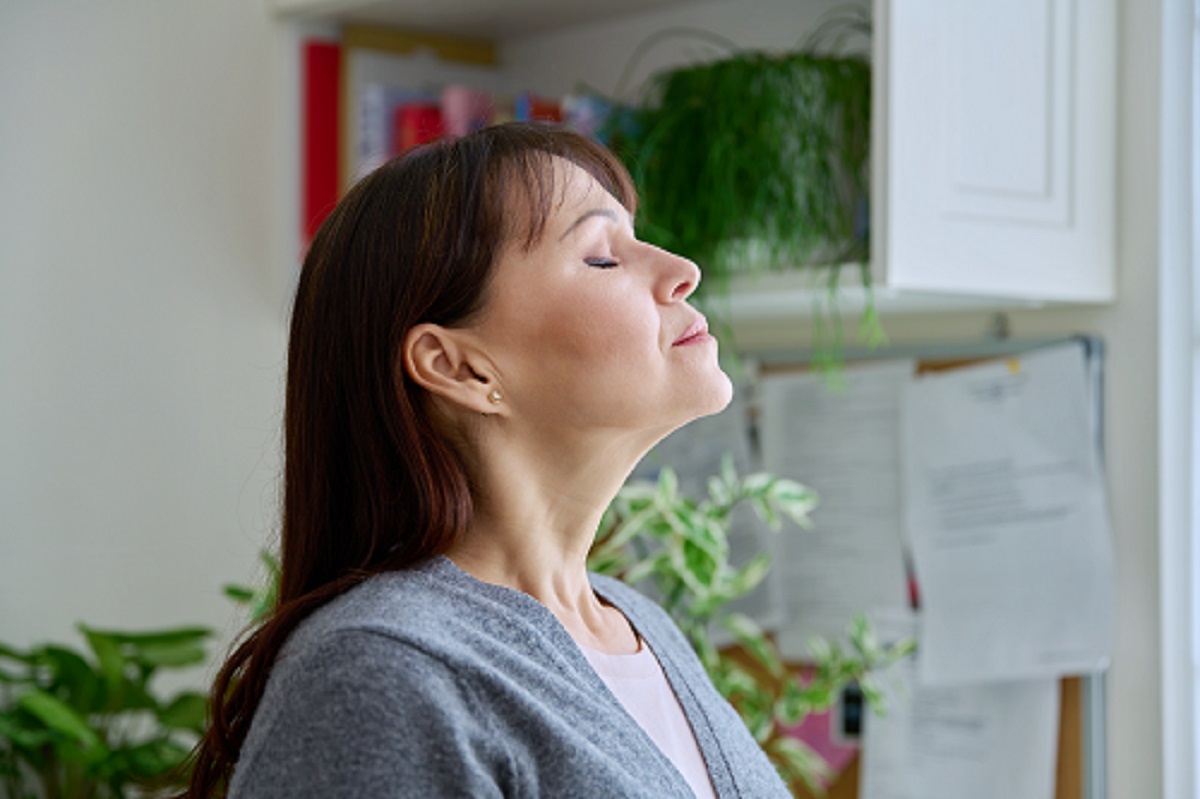
Simple Ways to Test Your Lung Health at Home
If you’re curious about your lung health, you can easily test it at home without using equipment. Consider having Nestwell assess to see if there are any lurking toxins in your living environment.
Do a Basic Breathing Test for Lungs at Home
To check your exhalation strength and complete a basic breathing test for lungs at home, take a deep breath and exhale slowly and evenly through a small mouth opening, like you’re blowing out a candle. Use your watch to see how long it takes to empty your lungs fully. Healthy adults should be able to exhale for 6 to 10 seconds. But if it's hard to sustain the exhale for that amount of time, or your breath feels shallow, you could have reduced lung function. Most healthy people can hold their breath for about 30 seconds. If not, your breathing endurance might be low, and changes in your home environment might be worth investigating. Nestwell can provide solutions to improve it after we assess your home.
Recognize the Signs of Healthy Lungs
Some of the signs of healthy lungs you might notice are:
- Breathing feels comfortable and natural while you’re resting or doing light activities.
- You’re able to speak full sentences without gasping or needing to pause.
- You don’t experience unusual shortness of breath while doing physical activities.
- Coughing is rare and not persistent or painful.
- You have minimal mucus production, and it's clear, instead of thick or discolored.
- You don’t feel tightness or pressure inside your chest.
- You recover quickly when you have a mild respiratory infection.
- Oxygen levels are stable whether you’re moving or resting.
- Sleep isn’t interrupted by breathing issues or wheezing
- You rarely experience noisy breathing, wheezing, or crackling.
Identify Toxins in Your House That May Affect Lung Function
Indoor air is sometimes more polluted than outdoor air, especially if toxic buildup goes unnoticed. Common toxins can come from mold in your bathroom or basement, smoke from your fireplace, or from synthetic cleaning products. Over time, these irritants can limit lung function, especially in children or in immunocompromised or older adults. If you think you might be experiencing lowered lung function, get an assessment of your home offered by Nestwell. While medical professionals can give you specifics, beginning to improve your environment with our assessment is a good first step to better health. If your breathing feels labored, seek medical attention immediately.
How Indoor Air Quality Impacts Your Lungs
Your lungs are intended to filter air and breathe it in and out, but poor indoor air quality can interfere with that process. When you inhale chemicals, smoke, or dust, your airways may become inflamed, making it hard for oxygen to get to your bloodstream. This can lead to wheezing, coughing, or fatigue. Repeated exposure to indoor toxins may cause long-term damage like chronic bronchitis, asthma, or reduce your lung capacity. If you think your home may contain toxins, then you should have it assessed to see which ones need to be controlled and eliminated. Removing irritants will ensure your lungs stay clear and support better overall wellness.
Natural Ways to Improve Indoor Air Quality
If you make a few minor adjustments to your home environment, you can refresh your air quality. Allow sunlight and fresh air into your home by opening your windows every day, even for a short time. Use natural fabrics in your home, like cotton and wool, that don’t trap dust. Keep humidity balanced by decorating with indoor plants that release moisture. Reduce sources of pollution by not smoking indoors, Vacuum pet hair and dander regularly. Simmer herbs or essential oils and don’t use chemical air fresheners. You can also get your air quality assessed by Nestwell to better understand improvements you should make to ensure you can have a more breathable space.
Common Household Habits That Damage Lung Health
You may not realize it, but everyday choices at home can quietly harm your lungs. Chemicals and cleaners, stale air, and indoor secondhand smoke can irritate your lungs and your respiratory system, which can also trigger asthma attacks, allergies, or other conditions. Small changes like opening windows and creating better ventilation can offer your lungs more protection from contaminants and unhealthy air. Switching to chemical-free products can remove toxins in your house and make it easier to breathe.
Daily Habits to Strengthen and Protect Your Lungs
Supporting your lungs starts with developing daily habits. Regular physical activity, like walking, swimming, or deep breathing exercises, can improve lung capacity and oxygen flow. Staying hydrated keeps your mucus thin and makes it easier for your lungs to clear irritants. Not inhaling pollutants like harsh cleaners that contain chemicals, avoiding smoke, and dust, can reduce the strain your respiratory system might experience from these. Eating antioxidant-rich foods like leafy greens, berries, and nuts can reduce inflammation and help your lungs work better for you. These small choices add up, keeping your lungs strong and resilient.
When to Seek Professional Lung Testing
If you experience frequent shortness of breath, persistent coughing, wheezing, or chest tightness, you might need to have your lungs tested by a medical professional. It might also be wise to answer some of the Nestwell questions and have them assess your home’s environment for toxins. You could have asthma, COPD, or reduced lung capacity from mold, lingering smoke, microplastics, or chemicals in your water. Even if your symptoms are mild, changes in your breathing pattern deserve attention.
There is no equipment involved in the Nestwell assessment. It's a free 3-minute assessment that combines personal data with scientific standards to give you meaningful lung health feedback and information regarding any urgent conditions. We’ll highlight 3 adjustments that can make the most meaningful difference for your lung health.
Unlock Your Healthy Home in 3 Steps
If you want to know if your home environment is healthy and safe, and that your family is breathing clean air, schedule one of our free home health assessments to discover what may be hidden in your home. We assess your home by asking you a list of questions about your environment and your family’s health. Using your zip code, environmental data about your location, and the other information we’ve gathered from answers to our questions, we’ll analyze the results and share a report with you that details recommended solutions for you to improve your home so you and your family are protected.
